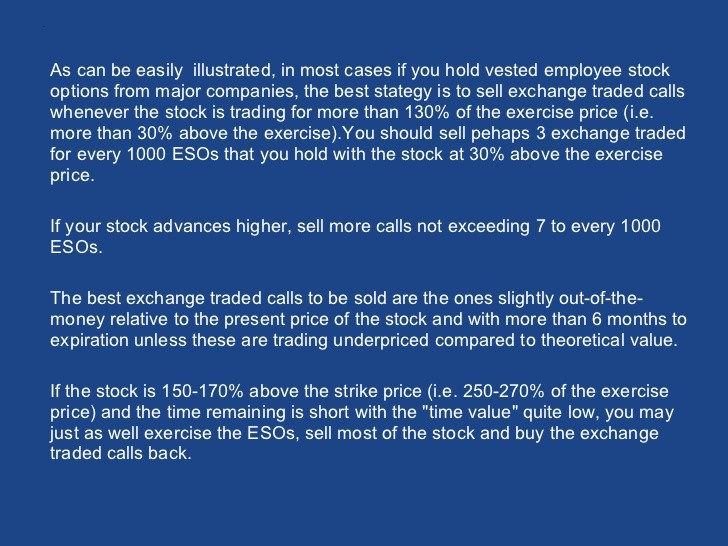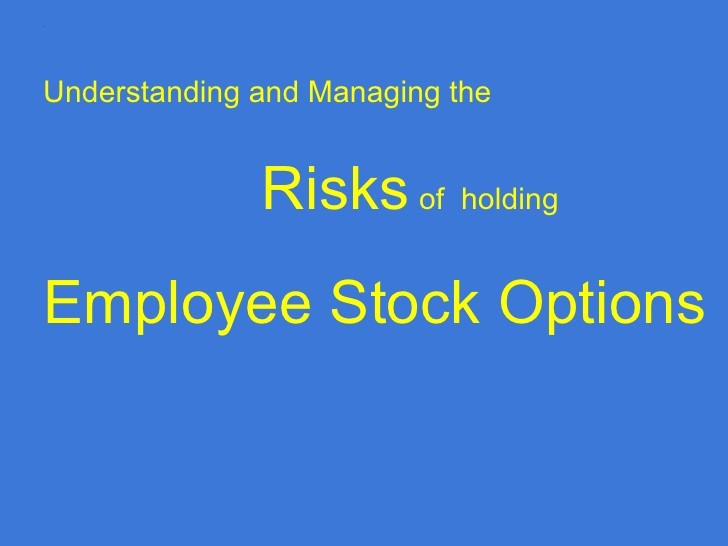Early Exercise Options Strategy
Post on: 21 Апрель, 2015 No Comment

and Assignment?
Early exercise happens when the owner of a call or put invokes his or her contractual rights before expiration. As a result, an option seller will be assigned, shares of stock will change hands, and the result is not always pretty for the seller. (Its important to note that when talking about early exercise and assignment, were referring only to American-style stock options.)
Being required to buy or sell shares of stock before you originally expected to do so can impact the potential risk or reward of your overall position and become a major headache. But chances are, if you sell options either as a simple position or as part of a more complex strategy sooner or later, youll get hit with a surprise early assignment. Many traders fail to plan for this possibility and feel like their strategy is falling apart when it does happen.
The strategies that can be messed up the most by early assignment tend to be multi-leg strategies like short spreads. butterflies. long calendar spreads and diagonal spreads. The latter two strategies can go particularly haywire as a result of early assignment, because youre dealing with multiple expiration dates.
In most cases, its a bad idea for option owners to exercise early. However, there are a few instances when exercising early does make sense.
As an option seller, youre at risk of early assignment at any time. And its impossible to predict whether an option owner will exercise early for the right reasons or the wrong reasons. But understanding the pros and cons of early exercise can make you more aware of when you might be at risk of early assignment.
The likelihood of a short option being assigned early depends on whether the option you sold is a call or a put. So lets examine each separately.
Three Reasons Not to Exercise Calls Early
Keep your risk limited
If you own a call, your risk is limited to the amount you paid for the option, even if the stock drops to zero. But if you own 100 shares of the stock and it completely tanks, youll be left holding the bag.
If your call is in-the-money prior to expiration, it makes little sense to exercise early. Thats because you can be party to gains without assuming the bigger downside that comes with owning the stock. If you do exercise your in-the-money call early and buy the stock, but then the stock falls below your strike price before expiration, youll really have egg on your face. In this case, you could have let the option expire worthless and bought the stock at a lower price on the open market.
Save your cash
If you exercise a call early and buy the stock, youll spend cash sooner instead of later. You already know how much you are going to pay for the stock, namely, the calls strike price. So why not keep your cash in an interest-bearing account for as long as possible before you pay for those shares? Disciplined investors look for every opportunity to achieve maximum return on their assets, and this one happens to be a complete no-brainer.
Don’t miss out on time value
By exercising a call early, you may be leaving money on the table in the form of time value left in the options price. If there is any time value, the call will be trading for more than the amount it is in-the-money. So if you want to own the stock immediately, you could simply sell the call and then apply the proceeds to the purchase of the shares. Factoring in the extra time value, the overall cost youll pay for the stock will be less than if you had exercised your call outright.
One circumstance when it might make sense to exercise a call early: approaching dividends
The exception to these three rules occurs when a dividend is going to be paid on the stock. Call buyers are not entitled to dividend payments, so if you want to receive the dividend, you have to exercise the in-the-money call and become a stock owner.
If the upcoming dividend amount is larger than the time value remaining in the calls price, it might make sense to exercise the option. But you have to do so prior to the ex-dividend date.
So always be aware of dividends whenever youve sold a call contract especially when the ex-dividend date occurs close to expiration, the call is in-the-money, and the dividend is relatively large.
Puts are at greater risk of early assignment as time value becomes negligible
In the case of puts, the game changes. When you exercise a put, youre selling stock and receiving cash. So it can be tempting to get cash now as opposed to getting cash later. However, once again you must factor time value into the equation.
If you own a put and you want to sell the stock before expiration, its usually a good idea to sell the put first and then immediately sell the stock. That way, youll capture the time value for the put along with the value of the stock.
However, as expiration approaches and time value becomes negligible, its less of a deterrent against early exercise. Thats because by exercising you can accomplish your aim all in one simple transaction without any further hassles.
If youve sold a put, remember that the less time value there is in the price of the option as expiration approaches, the more you will be at risk of early assignment. So keep a close eye on the time value left in your short puts and have a plan in place in case youre assigned early.

Dividends as a deterrent against early put exercise
As opposed to calls, an approaching ex-dividend date can be a deterrent against early exercise for puts. By exercising the put, the owner will receive cash now. However, this will create a short sale of stock if the put owner wasnt long that stock to begin with. So exercising a put option the day before an ex-dividend date means the put owner will have to pay the dividend.
So if youve sold a put, this means you may have a lower chance of being assigned early, but only until the ex-dividend date has passed.
What to do if you’re assigned early on a short option in a multi-leg strategy
Early assignment on a short option in a multi-leg strategy can really pull a leg out from under your play. If this happens, theres no hard-and-fast rule on what to do. Sometimes youll want to exercise any long options and sometimes youll just want to close your entire position. But its always a good idea to keep a swear jar and some small bills near your computer just in case.
If you are assigned early on a multi-leg strategy, feel free to give us a call at TradeKing and well help you handle it in the most opportune way.
American-style vs. European-style options
When it comes to exercise and assignment. there are two styles of options: European-style and American-style. But dont let the names throw you. They have nothing to do with where the options are traded. In fact, both American- and European-style options are traded on U.S. exchanges. The different styles simply refer to when the options may be exercised and assigned.
American-style options can be exercised by the owner at any time before expiration. Thus, the seller of an American-style option may be assigned at any time before expiration.
As of this writing, all equity options are American-style contracts. And generally speaking, options based on exchange-traded funds (ETFs) are also American-style contracts.
European-style options can be exercised only at expiration, so the seller doesnt have to worry about being assigned until then. Most index options are European-style.
Before you set up a position, its critical to know whether the options youre trading are American- or European-style, so youll know if early exercise or assignment is a possibility for you.
Just keep in mind that either style of option can still be bought or sold to close your position in the marketplace at any point during the contracts lifetime.














